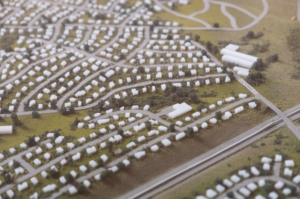An analyst’s toolkit comes in many shapes in sizes and is tailored toward whichever field they specialize in. However, no analyst’s toolkit is complete without the ability to operate in a simulated environment, extract experiences, and apply these simulated outcomes to analysis of the real world.
At Praescient and in the broader analysis field, analysts regularly place themselves in a variety of theoretical environments in order to better understand their field of work. The most accessible levels of such work are assessments such as the SWOT (strengths, weaknesses, opportunities, threats) model which help analysts work from the perspective of a specific actor or player. This assessment presses analysts to think in detail about how an actor might perceive a situation, and in doing so also assess potential actions or reactions. In other cases, the model might help formalize an analyst’s perspective on an actor, dividing opinions and background knowledge into more accessible and organized sectors. SWOT analysis, as well as other models, allow analysts to view a certain challenge or situation from a variety of perspectives.
In confrontational environments, analysts might independently or collaboratively “red team”. In these cases, analysts seek to perceive a project or action from an opposition perspective. By placing themselves in the actors shoes, analysts are able to better understand not only the threat which the opposition might pose, but also how the opposition might react or respond to any given change in the situation. This allows the analyst to prepare contingency plans in the case of an opposition reaction, and mitigates problems which might arise from the analyst being surprised by an opposition action.

In the most immersive environments, analysts may design or take part in “wargames” or simulations. These events force analysts to actively take the role of an actor in a given situation, mapping likely and desired actions and outcomes of said actor, and receiving feedback on these projections from other analysts. Wargames and simulations come in many shapes in sizes, some are run by amateur organizations exploring special topics, while major organizations and branches of the armed forces hold their own designed to analyze specific problems in the fields. Regardless of the host or topic, analysts can derive significant benefits from simulations. The “godfather of wargaming” Peter Perla argues that from the gaming and narrative level all the way down to the neurological level, wargaming forces analysts to approach topics with different perspectives. He argues that by placing players in a wargame, their actions are shadowed by concepts of action, reaction, responsibility, and consequence. Similar to how lighter commitment processes such as red-teaming help analysts to evaluate the priorities and actions of other actors, wargaming allows analysts to observe a situation from a variety of angles.
Critically, wargaming forces analysts to not only consider the raw information in a situation, but how varying aspects of a situation such as communication and social interaction might affect an environment, gaining a more in-depth understanding of a given topic.
Praescient recognizes the need for analysts to utilize different perspectives and experiences in the field. We routinely provide training sessions and material for clients, designed to prepare clients to face challenges in whichever field they operate. Our training programs are predicated on the expectation that at the end of courses or sessions, our clients are not only better prepared to operate in their field but also have an in-depth and experienced understanding of the field. A key component of promoting this level of preparation is the inclusion of active practice material during training sessions. As opposed to simply observing material, we require that our clients engage with exercises and simulated activities. We find that interaction with analysis and the tools we use to carry it out better prepares analysts to apply these practices to the real world. Simulated practice environments force analysts to develop a better understanding of situations, and better prepare analysts to contend with whatever challenges they may face in the future.